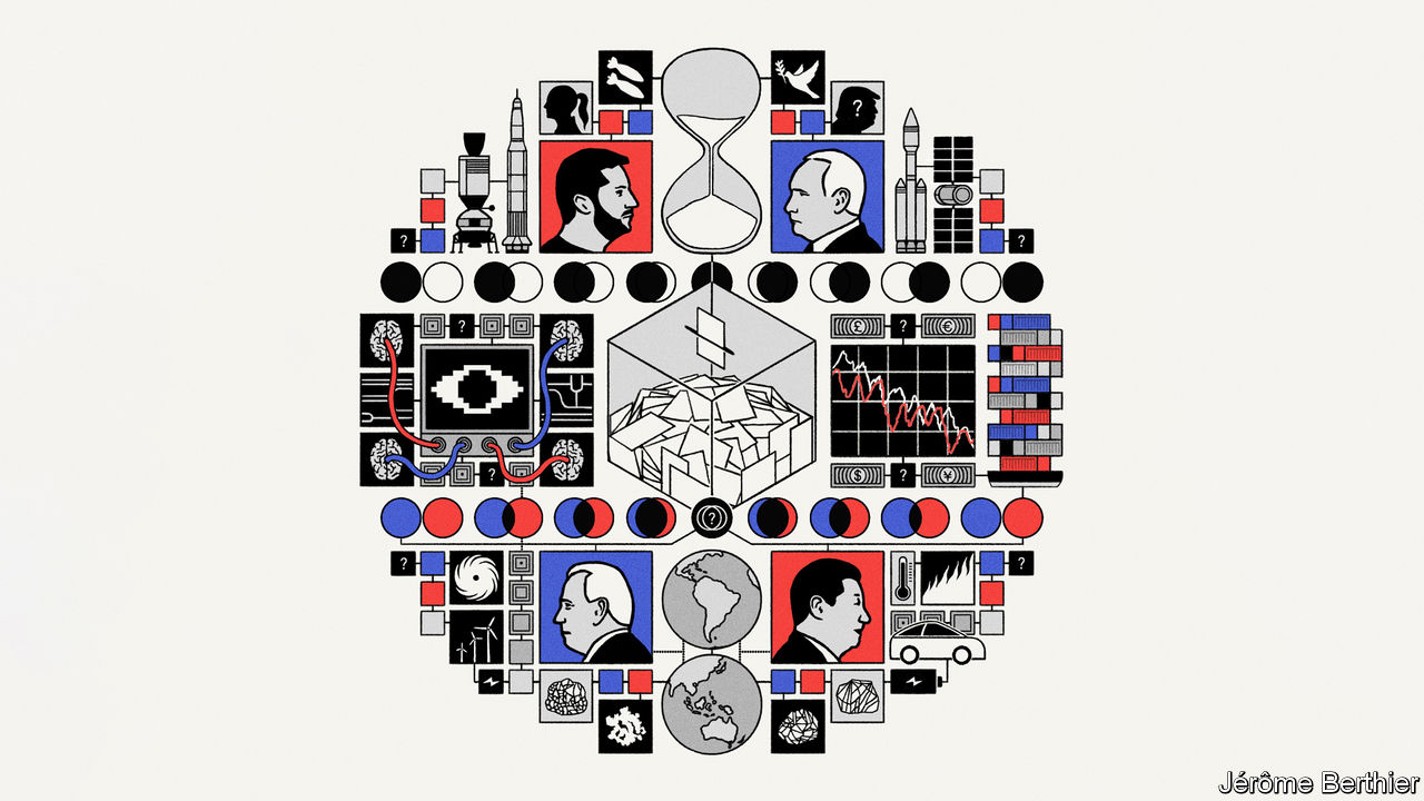Don’t give up on peace in the Middle East
But the process of getting there will be alarmingly fragile

By Edward Carr
IF 2023 was the year when the Palestinian conflict shook the Middle East, 2024 will be the year when it starts to become clear whether the Middle East can shake the Palestinian conflict. Terrible as it is to write after so much death, the region has not had a better chance of peace in two decades. Unfortunately, neither has the Palestinian conflict had a greater chance of spiralling out of control. Which will it be?
Hamas’s murder of 1,400 Israelis will bring change in 2024 because it destroyed the strategic concept that had allowed Israel and much of the Arab world to ignore the Palestinians’ plight. No longer can anyone pretend that a mix of financial incentives and Israeli air strikes can control Hamas. If Israel is to honour its founding promise to be a homeland where Jews are safe, it needs a new approach.
The attack will also produce new leaders on both sides. Israel’s military and intelligence chiefs will resign when the war is over. And its prime minister, Binyamin Netanyahu, will be forced from office. Not only did this catastrophe take place when he was in charge, but his political brand as Israel’s staunch defender lies in ruins. Meanwhile, Hamas’s leaders are likely to be killed by Israeli forces, and their counterparts in the Palestinian Authority (PA) in the West Bank could end up being driven from power. New leaders bring change, too.
A number of things could conspire to make this a change for the worse. One is the war itself. Israeli forces are killing thousands upon thousands of Palestinians, including many women and children. Hamas cannot defeat Israel, but it does not need to. Amid the understandable fury this is causing in the Arab world and beyond, just surviving would mean that Hamas emerges stronger in the eyes of Palestinians. If Israel loses international support, it may be forced to stop fighting sooner than it is ready. If Palestinians are radicalised, Hamas could rise from the ashes to become a symbol of resistance.
Another danger is that the violence spreads. Hizbullah, an Iranian-backed militia, could open a second front in the north, across the border with Lebanon. More likely is popular unrest in the West Bank, where Hamas has recently been working to increase its influence, and where young Palestinians have lost faith in the PA and its do-nothing, election-avoiding president, Mahmoud Abbas.
If Hamas retains control of Gaza, and the West Bank is in flames, Israel will not be safe. It will strike Gaza repeatedly, whenever Hamas seems a threat, lest another attack take place. No Palestinian leader will be in a position to talk to it, even if they wished to. The Arab world, whose backing is vital for peace, will want to keep its distance. The Holy Land will be in a state of permanent semi-war.
However, that does not have to be the outcome. The operation to destroy Hamas and its tunnels could last several months. Imagine that at the end of it, Israel is satisfied that Hamas’s rule over Gaza has been broken. Imagine that ordinary Palestinians will contemplate the idea of living beside Israel in peace. And imagine that even as the presidential campaign in America enters its final months, the Biden administration still has the drive and focus to undertake active diplomacy. There is a slender chance of all these things falling into place, but if they do, a delicate transition may begin.
It starts in the Palestinian territories, with leaders who can combine legitimacy at the ballot box with an acceptance of Israel’s right to exist. Only that combination will produce a partner with whom Israel can cautiously begin to build trust. At the moment, while Palestinians are seething with anger at Israel’s assault in Gaza, no such leader is available. But although Mr Abbas has engineered it so that he has no rivals today, successors may appear once he has gone.
New leaders in Israel will have almost as daunting a task. Not only must they win over traumatised Israelis to the idea of making peace, but they must also confront the settler movement which was never so powerful as under Mr Netanyahu’s last government. For as long as settlers are killing Palestinians in the West Bank, peace will remain out of reach.
It will be just as hard to create the security needed in Israel and the Palestinian territories to allow peace to take root. In the past those who wished to destroy peace were able to use violence to discredit moderate voices within their respective camps.
Nowhere is this problem harder than in Gaza. An Israeli occupation would only radicalise the Palestinians there. Some imagine an Arab peacekeeping force, perhaps of armed police rather than troops. The Arab countries that now have closer relations with Israel than they did in the past, through the Abraham accords, may help. But they will take a lot of persuading.
The Middle East is the graveyard of plans for peace. It is a harsh and violent part of the world. But in 2024 you should cling to one hope. After two decades of stagnation ended on October 7th with terrible violence, the pursuit of peace is the only fresh idea left.■
EDWARD CARR, Deputy editor, The Economist
This article appeared in the Leaders section of the print edition of The World Ahead 2024 under the headline “Don’t give up on peace in the Middle East”
